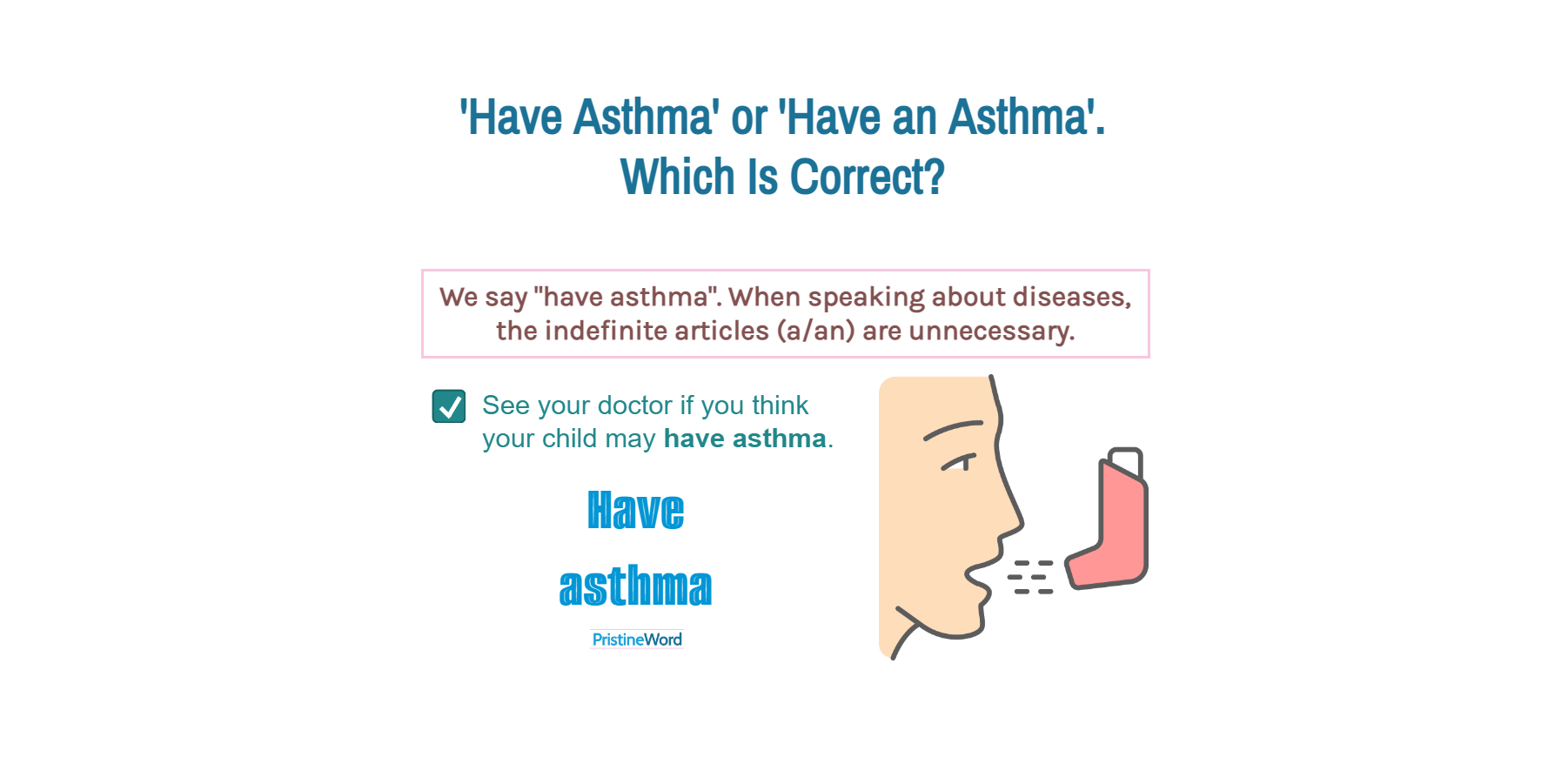We say "have asthma". When speaking about diseases, the indefinite articles (a/an) are unnecessary.
We say "have asthma". When speaking about diseases, the indefinite article (a/an) is generally unnecessary.
See your doctor if you think your child may have asthma.
See your doctor if you think your child may have an asthma.
Since most names of illnesses and conditions are uncountable, we omit the indefinite article.
If you have asthma, the inside walls of the airways in your lungs can become swollen.
Having asthma may increase your risk of developing pneumonia.
Follow the same practice with other related phrases and expressions; for example, we say "treat asthma", "cause asthma", "prevent asthma", "diagnose asthma", etc.
Allergies can cause asthma.
This medication can be used to treat asthma.
Be aware, however, that you can use a possessive pronoun (my, your, his, her, our, etc.) before "asthma".
If your asthma isn't properly controlled, you're more likely to experience an asthma attack.
As an adjective, you can include the word asthma to describe a noun. In this situation, use the articles a/an or another determiner (this, that, my, your, etc.) according to the usual rules.
If you have an asthma attack, use an inhaler.
An asthma patient may also have a dry cough and tightness in the chest.
There are more names of conditions that do not take the article a/an. Some examples can be found below:

